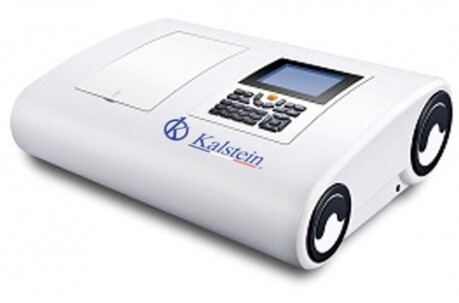The spectrophotometer is a piece of equipment used in the laboratory in order to determine the concentration of a substance in a solution, thus allowing quantitative analysis to be carried out. Proper calibration of the spectrophotometer is a fundamental factor in obtaining an accurate and reliable measurement.
We must bear in mind that having the spectrophotometer calibrated at all times will help us to obtain much more precise information from the measurement we carry out. Furthermore, in some cases, the device itself may not allow a measurement to be taken if it is not previously calibrated.
We also have to take into account that the spectrophotometer, being a photosensitive device, can become out of calibration due to sudden changes in ambient temperature or extreme temperatures.
The calibration process, according to the instructions for use, must be carried out a maximum of every 14 days. Our recommendation is to do it daily, since the investment of time in relation to its benefits is minimal.
What is the calibration of the spectrophotometers?
Spectrophotometer calibration consists of carrying out a set of operations whose purpose is to determine the magnitude of the errors that the equipment makes when making measurements, these errors are obtained by comparing the results of each measurement with certified values of a reference material, taking into account that the measurements were made under the same or similar environmental conditions and calibration place.
The calibration takes into account the quantification of errors and the uncertainty of the photometric scale and the wavelength scale. Which serve as a basis to know the state in which it is with respect to the manufacturer’s specifications, accuracy class or the maximum permissible errors of the equipment. The uncertainties in the wavelength and photometric scales are obtained with the uncertainties of the reference standards.
Key concepts in calibrating a spectrophotometer
- Control of the wavelength accuracy: with this test it is established whether the wavelength indicated by the equipment corresponds exactly to the one it projects.
- Control of photometric accuracy: with this experience, the agreement is established between the absorbance referred to a known solution and the absorbance determined by the equipment.
- Control of photometric precision: with this test the reproducibility of the measurements made by the equipment to a stable solution is checked.
- Control of photometric linearity: this property allows knowing the range of absorbances within which the spectrophotometer produces responses that are proportional to changes in the concentration of a substance.
What considerations should you take into account regarding the maintenance of a spectrophotometer?
Spectrophotometers, in general, are highly specialized and expensive equipment. Its conservation depends to a great extent on the way of installation and use. The environment that surrounds them and the quality of the electricity services are factors of primary importance, so that the equipment can provide the services in accordance with the specifications for which they were manufactured. The maintenance routines that may be required vary in complexity, ranging from careful cleaning of their components to specialized procedures, which should only be carried out by technicians or engineers who have received the corresponding training and have the technical information developed by the manufacturers.
At Kalstein we offer you innovative spectrophotometers designed with the highest quality and technology. That is why we invite you to take a look at the Products menu. HERE


